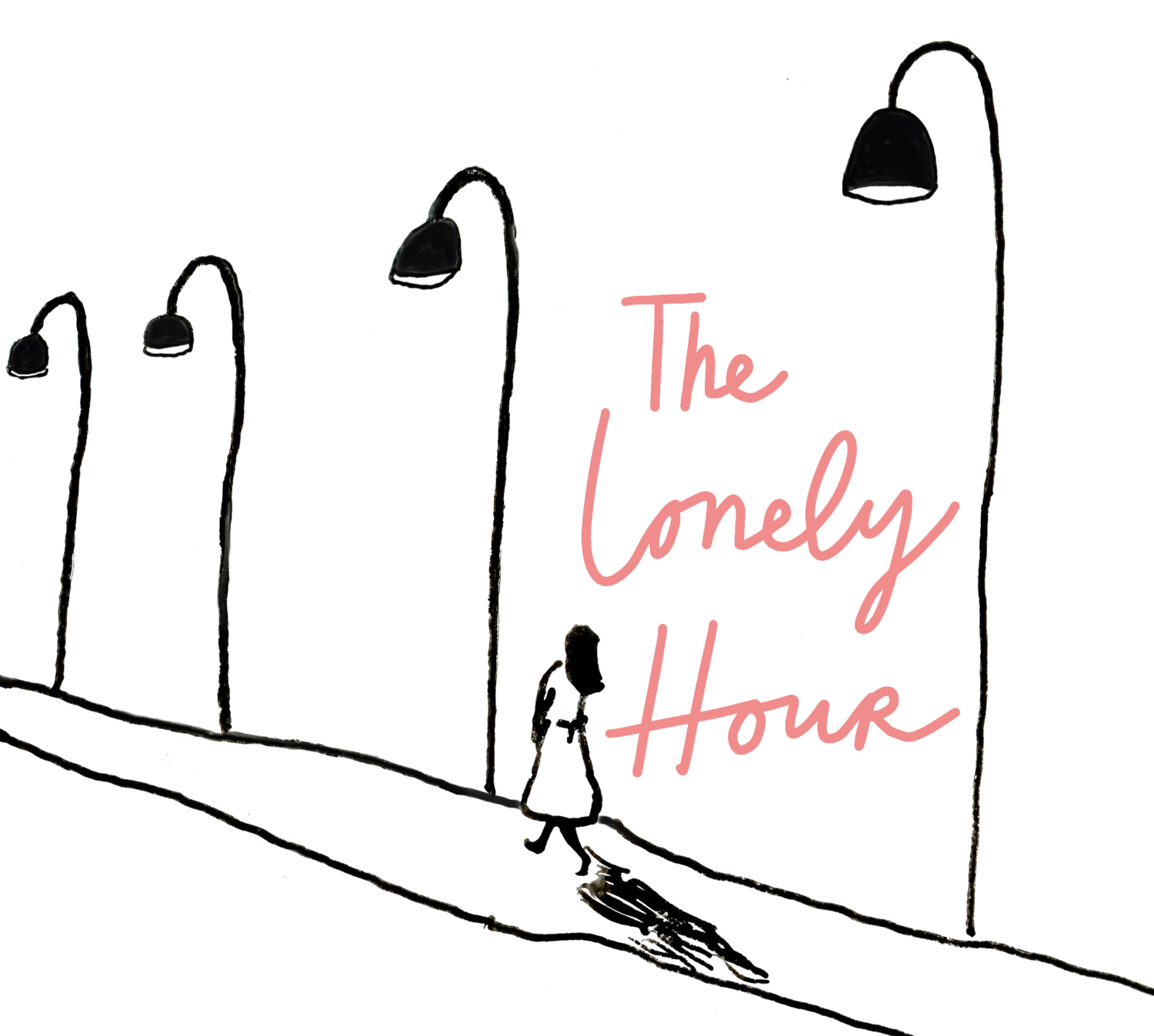Kara Amedori Stewart is a copywriter for Pfizer women's health at Saatchi & Saatchi Wellness. When not writing, Kara is laughing with her husband and pug or discussing ancient alien conspiracy theories with restaurant staff who inquire about her reading choices.
I take my mother’s manicured hand. It’s the hand that scratched my head when I was tired, the same hand that slapped me across the face when I stumbled in past my curfew. I take my mother’s hand so that she can walk me down the aisle on my wedding day, just before sunset.
I am sure my father is in a bar, lifting a cool beer bottle to his lips, asking someone the time.
Can those women—the ones whose fathers call them “daddy’s little girl”—smell it on me? “Paternal abandonment.” What does that smell like?
I have a very distinct memory of sitting on my older sister’s bed in the middle of the night while we listened to Mom and Dad argue. The next thing we knew, the front door opened and shut and we heard Dad’s truck pull out of the stone driveway. Nicole ran down the hall in her nightgown and bare feet, whipped open the front door, called to Dad, and ran out into the driveway, the hem of her nightgown picking up dirt. Dad slammed his brakes, Nicole got into the car, and they both drove away.
The first of two times my father has ever cried in front of me, I was seven. He and Mom had just split, and he was staying in an apartment nearby. Nicole and Dad were close—I was closer with my mom—but that particular night, Nicole didn’t want to go to Dad’s when he came to get us. So I went alone. I made Dad sleep on the pullout couch with me, but I woke up feeling homesick. Dad sat up on the edge of the bed, and he put his head in his hands, and he cried. His back bent, his head hanging low, and his body shaking, Dad cried really hard. I rubbed his back and told him it was okay.
How I dealt with living through 33 years of an on-again, off-again relationship with my alcoholic father is cliché: I slept around, I did drugs, and I drank too much myself. During my teenage years, I disliked being alone. I had big plans every weekend—I was very social—and they usually ended in a blackout. Surface level romance and touch-and-go friendships suited me best.
When I first met Jerry, I thought, “This man is not my father.” He was quiet and observant and thoughtful. Jerry never drank. He was the Carroll County State’s Attorney, staying up mostly every night, reviewing notes and evidence and preparing for trials. When he married my mother, I still missed my father, but Jerry raised me well.
Every other weekend, Nicole and I packed our bags to go to Dad’s. He had moved to another state, remarried, and produced three more little girls who he told us were our “real” sisters—the five of us were all sisters. Sometimes, I guess Dad would forget about us two, though. Or maybe he’d get into arguments with our stepmom about not spending enough time with his new family. Either way, sometimes Dad wouldn’t show up. The sun would set, and Mom would come over to us, standing at the window, and suggest that maybe Dad isn’t coming this time. So Nicole and I would take our bags back to our rooms and unpack them. I think sometimes I cried when this happened, and other times I’d get angry.
Jerry would come home from work with gifts. One time he brought Nicole a gold necklace with a solitaire diamond that hung perfectly in the middle. I desperately wanted it, but I didn’t say so. Then one day after school, Jerry handed me a box. He had bought me my own diamond necklace to match my sister’s! He also gave me a beautiful diamond and sapphire ring that I now wear forced onto my left thumb so that it never comes off.
Last year, Jerry died. After pulling the trigger of a pistol with his left hand, Jerry was found and rushed to the hospital, where he lay alive for two and a half more hours. Questions always linger after a suicide, but my questions for Jerry are more about logistics. Why didn’t he use his dominant right hand? Why did he point the gun at his temple and not inside his mouth? Jerry had been a Vietnam Green Beret, he certainly knew how to properly kill a man.
I don’t drink as much as I used to, and I don’t sugarcoat anything anymore. This feels lonely. I have no father and no father figure. I would have liked one of those on my wedding day.
When I see a man with his daughter, my heart still aches. Instead of showing my longing, though, I keep walking, hoping that years of carrying my story will finally mask that smell.

